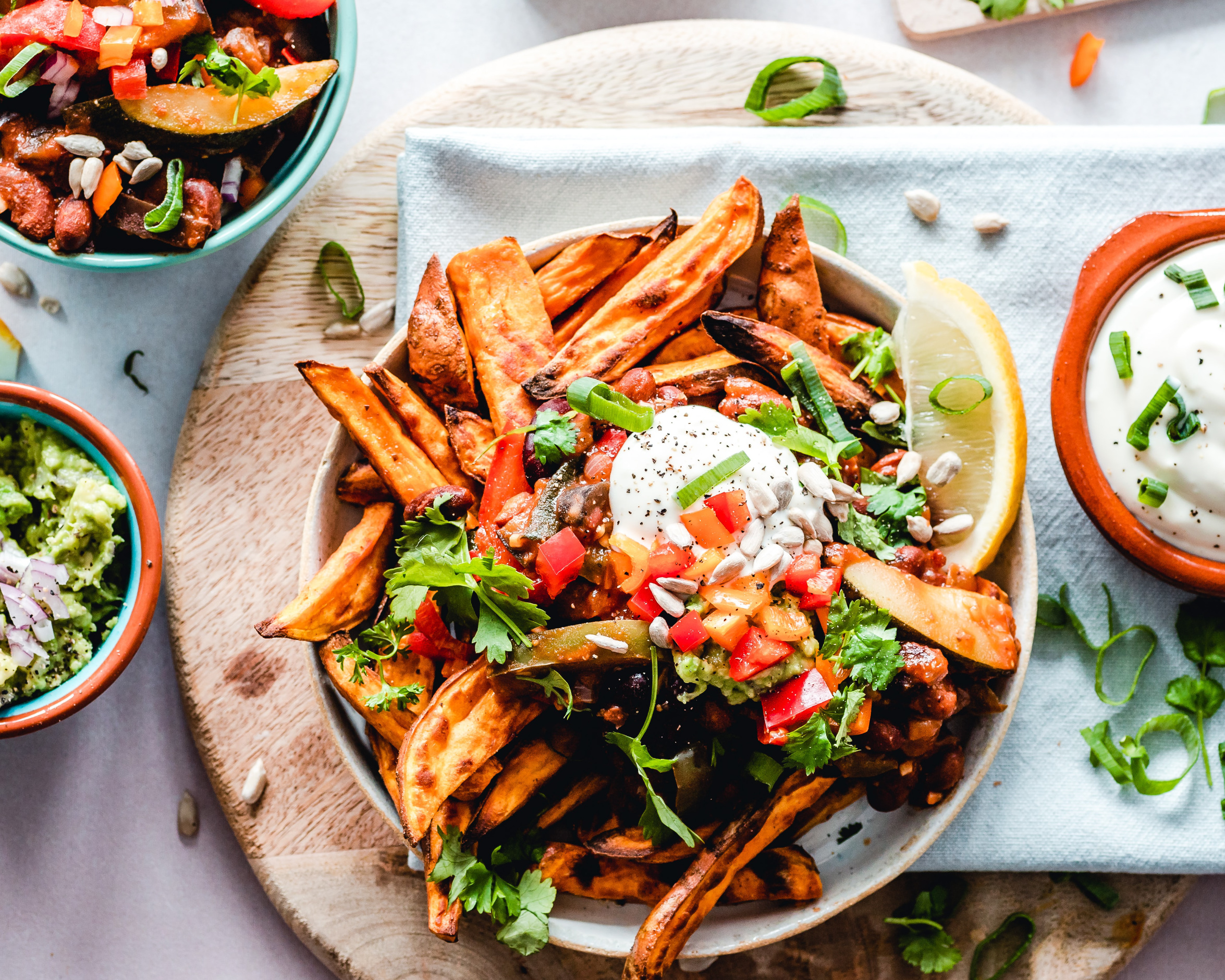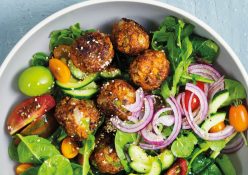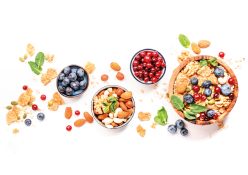Is a plant-based diet for you? Here’s what you need to know according to dietitian Jessica Kotlowitz.
WHY PLANT-BASED DIETS
‘First things first, a plant-based diet is where 90% or more of your daily calories come from foods of plant origin,’ says Jessica. ‘It’s not necessarily a vegan or vegetarian diet, since you could get a small amount (10% or less) of calories from meat or animal products.’ Plant-based diets have been shown to be among the healthiest diets, Jessica explains. ‘They can help with weight loss, lower your cholesterol and blood pressure, lower the risk of certain cancers, and also prevent and treat heart disease and diabetes.
Moreover, plant-based eaters are the only group of the population with an average weight in the healthy BMI range.’ Plant-based diets also usually don’t contain the disease-causing components (such as hormones, saturated fats, pro-oxidants and pesticides) found predominantly in animal-based foods. ‘If you can maintain a balanced, wholesome diet with plant foods, there’s no reason you shouldn’t thrive on a plant-based diet,’ says Jessica.
KEEP IT BALANCED
To make sure your diet contains everything that you need, Jessica says you should pay attention to these nutrients:
Iodine
‘This is essential in the healthy functioning of the thyroid, but dietary sources are few. Luckily, local table salt is fortified with iodine and you only need a small amount (¼ tsp per day).’
Calcium
There are lots of good plant-based calcium sources, but some are high in oxalates, which interfere with its absorption. ‘For example, spinach is high in calcium, but also high in oxalates. However, broccoli, kale and pak choi are brilliant sources of calcium with low oxalate levels.’ Jessica also recommends calcium-set tofu and calcium-fortified plant milks. ‘Beans, nuts and seeds are great sources, and soaking them may improve calcium absorption.’
Vitamin B12
‘It’s the only nutrient that can’t be obtained solely from plant foods and needs to be obtained or supplemented through eating fortified plant foods.’
Vitamin D
Although you can get some vitamin D from your diet (oily fish, eggs and organ meat), it is mainly made by the body via exposure to sun, says Jessica. ‘Plant-based eaters who don’t get enough direct sunlight may need to use a supplement, especially during the winter months.’
Iron
Plant-based diets contain just as much iron as omnivorous diets, says Jessica, but some iron-rich foods also contain the antioxidant phytates, which can inhibit the absorption of iron. ‘When you eat iron-rich foods such as tofu, beans, nuts, seeds, leafy greens and wholegrains, include foods that are rich in vitamin C to help aid absorption.’
Protein and amino acids
Protein occurs in all of our food groups, including vegetables and fruit, says Jessica. ‘Good protein sources include legumes and soya products, nuts, seeds and wholegrains.’ It was once thought that plants lacked essential amino acids and that they needed to be combined to make up ‘complete proteins’,Jessica adds. ‘But we now know that all plant proteins contain all nine essential amino acids, albeit in varying degrees.’
SOMETHING MEATY
Firstly, you must make sure that you are eating enough, Jessica says. ‘Cravings can be a sign that your body isn’t getting enough calories or is lacking a particular nutrient. Eat wholesome meals with enough healthy fats, good carbohydrates and plant protein and try to work out what nutrient you may be lacking.’ The umami flavour, which is associated with meat, is often the missing taste when you transition and can be compensated for with mushrooms, miso or soya sauce. If this falls short, opt for meat alternatives. ‘There are great products that mimic the taste and texture of meat. Sometimes, a good veggie burger will hit the spot.’
Words by Emily Bissett
Photography: Unsplash







